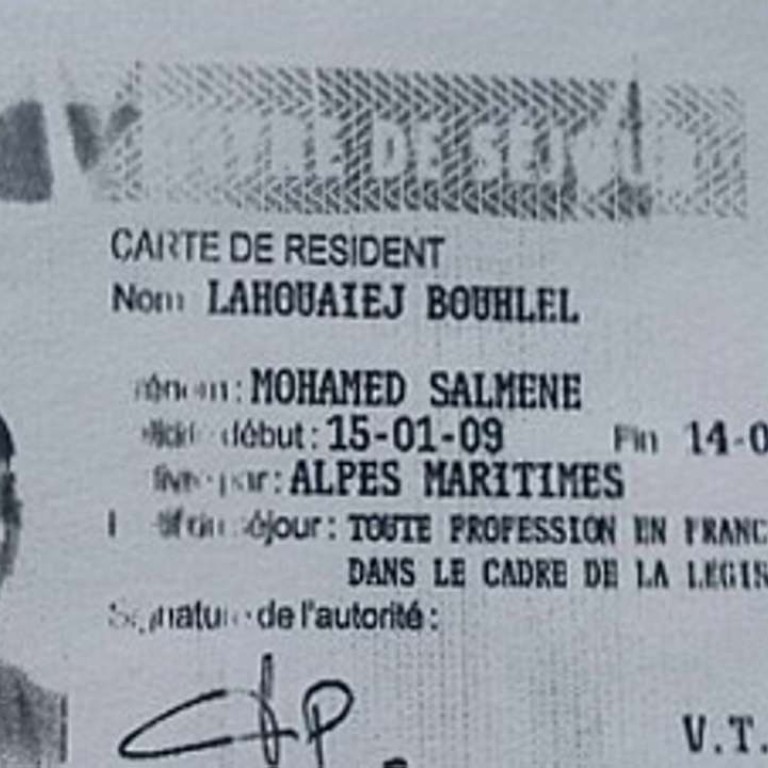
Father of Nice attacker insists ‘he had no links to religion’ but had previously suffered mental problems
Investigators compiling a picture of Mohamed Lahouaiej-Bouhlel as man with a record of petty crime, but no known links to terrorist groups
The Tunisian-born driver who killed 84 people after slamming his truck into a crowd of revellers in the French resort of Nice had suffered from depression but had nothing to do with religion, according to his father.
“From 2002 to 2004, he had problems that caused a nervous breakdown. He would become angry and he shouted ... he would break anything he saw in front of him,” Mohamed Mondher Lahouaiej-Bouhlel said outside his home in the city of Msaken in eastern Tunisia.
He said the family took Mohamed Lahouaiej-Bouhlel to a doctor who prescribed medication to counter his depression. Lahouaiej-Bouhlel described his son as “always alone, always depressed” and not wanting to talk.
The father said the family in Tunisia had almost no contact with his son after he left for France, but he could not say when exactly this was.
“When he left for France we heard nothing more from him,” he insisted.
The father also insisted that his son “had no links to religion”.
“He didn’t pray, he didn’t fast, he drank alcohol and even used drugs,” he said. “We are also shocked.”
French Prime Minister Manuel Valls on Friday said Mohamed Lahouaiej-Bouhlel was “probably linked to radical Islam in one way or another”, although Interior Minister Bernard Cazeneuve cautioned that it was too early to confirm such a link.
He had problems that caused a nervous breakdown. He would become angry and he shouted ... he would break anything he saw in front of him
Lahouaiej-Bouhlel, born on January 31, 1985 in the Sousse suburb of Msaken, was married to a Franco-Tunisian resident of Nice. They had three children including a baby. The father confirmed that his son was “not on good terms” with his wife.
Anti-terrorism prosecutor Francois Molins said the Tunisian-born attacker was “completely unknown” to the intelligence services but that the assault was “exactly in line with” calls from jihadist groups to kill.
As France was left reeling from its third major attack within 18 months, President Francois Hollande warned that the toll could rise further, with more than 50 people fighting for their lives.
The massacre again prompted questions about why France is a persistent target for attacks like these and what can be done to prevent such an unsophisticated assault.
Hollande’s political opponents were already pointing the finger, with presidential contender Alain Juppe saying the carnage could have been avoided if “all measures” had been taken.
Investigators were building up a picture of Lahouaiej-Bouhlel as man with a record of petty crime, but no known links to terrorist groups.
While no organisation has claimed responsibility and Islamic State group publications issued on Friday made no reference to the attack, Hollande said France would “step up” military action against IS targets in Syria and Iraq.
“We will continue striking those who attack us on our own soil,” he said.
IS has repeatedly singled out France as a prime target for its military action against the group in Iraq and Syria, and hundreds of jihadists have left France to fight in its ranks.

.png?itok=arIb17P0)